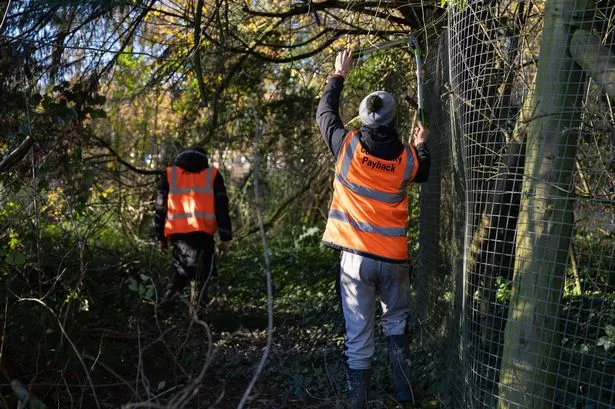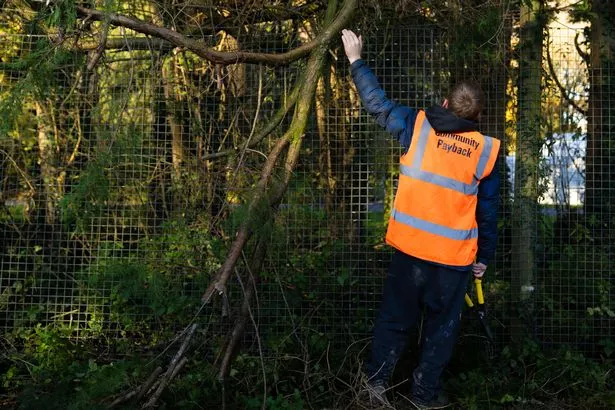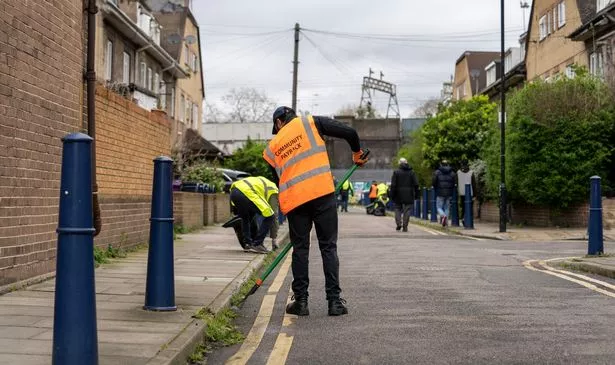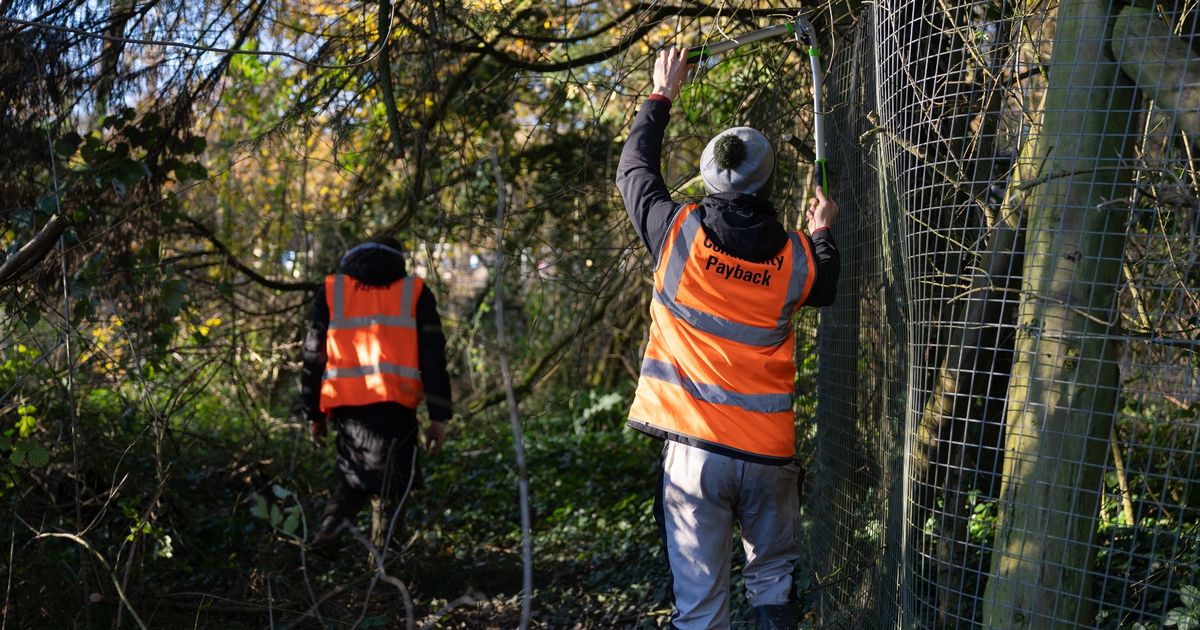“Everything that we do has got to be meaningful” Two men on community service cut down branches blocking a canal path(Image: Ministry of Justice)
Two men on community service cut down branches blocking a canal path(Image: Ministry of Justice)
When you hear the phrase ‘community payback’, images of big groups wearing neon-coloured bibs in the middle of a rubbish-filled field, armed with litter pickers, come to mind.
That age old dynamic could not be further from the truth, says Lorraine, an unpaid work placement coordinator based in Greater Manchester.
Instead, offenders are given meaningful work, encouraged to care for and protect their community. As a result, they change their lives for the better.
Lorraine initially worked for Lancashire Constabulary as a custody detention officer. But she always wanted to do more to help make a difference to people’s lives, she told the Manchester Evening News.
Join our Court and Crime WhatsApp group HERE
“I really want to help people and try and be that voice, that little niggle that they hear in their head when they think about doing something wrong and they think, ‘oh, what would Lorraine say?'” she said.
“I get to see people when they’re pretty low, when they come to us to begin their unpaid work. But by the time they’re leaving us, they’ve completely changed. They are different people.
“They’ve got a completely different outlook. And they only thank you. They send you cards. They give you hugs. It’s incredible, it is a job like no other.”
Community payback is much more than litter picking and cleaning graffiti. “Everything that we do has got to be meaningful and it’s got to be a benefit to the community,” Lorraine said.
 A man carrying out community service cuts down branches blocking a canal towpath(Image: Ministry of Justice)
A man carrying out community service cuts down branches blocking a canal towpath(Image: Ministry of Justice)
“We don’t do ‘nothing jobs’. A lot of people think that unpaid work is just wandering around aimlessly picking up rubbish and it isn’t like that anymore. We work with charities. We work with the local councils. We work with the Canal and River Trust.
“We do a lot with cemeteries and graveyards. A lot of the work is manual labour. Keeping green spaces nice and tidy, looking after the grounds of cemeteries.
“We’ve done one really good project in Stalybridge and we do it in Manchester as well, which is with the Canal and River Trust. There’s times where people are fearful to walk down the canal towpaths on their own because they’re overgrown and people are hanging around.
“We’ll go in there and we’ll make it so that you can see a reasonable distance, cut back any overhanging trees, make sure that the footways are not full of obstacles, reset cobblestones, all sorts of different things. Absolutely endless, it really is.”
Whilst some are keen to put the graft in and get it over and done with, others need a little bit more encouragement.
 A man on Community Payback uses a hoe to clear weeds from a street in Bethnal Green(Image: Photo by Harvey Fryer, HMPPS)
A man on Community Payback uses a hoe to clear weeds from a street in Bethnal Green(Image: Photo by Harvey Fryer, HMPPS)
“Some people they’ll get their order in court, they’ll be told you’ve got to do this many hours within 12 months and they’ll just say ‘right okay I’ve been told to do this and that’s exactly what I’m going to go and do’. Other times you get people who they don’t want to do it and they will do everything that they can not to do it,” she said.
“So they just need the encouragement and this is where you’ve got to step in. You’ve got to be really resilient, you’ve got to be quite a strong character. To be able to say ‘well actually, hang on, if you don’t do this, this is what’s going to happen’.”
She said the main challenges are encouraging those who don’t want to be there.
Lorraine said: “They don’t want to give up one day a week to go and do work for free, essentially. Some of the behaviour can be challenge, you can get shouted at, you get sworn at, you can get people’s opinions thrown at you. But you’ve just got to just remember that it’s not personal.
“We deal with people and they’ve got mental health problems, drug and alcohol misuse problems, so sometimes you don’t know which way that person’s going to be that day. It’s learning and dealing with that sort of up-and-down behaviour.”
One of Lorraine’s highlights of her career was when she was invited to Buckingham Palace to the Royal Garden party last year, following some excellent feedback from one of the people she had helped.
“I thought it was a joke email at first when it came through until I got the invite through the post. You really, genuinely, can help people and and you build those relationships over that 30 hours or 300 hours that somebody’s sentenced to,” she said.
“You’re spending that time chipping away and moulding them into what you expect them to be. It’s a bit like when children are growing up, you mould them into being that decent person. As a parent, it’s your job, isn’t it? And you know, it’s similar in this job.”
To find out more about the role of a community payback officer, click here.
